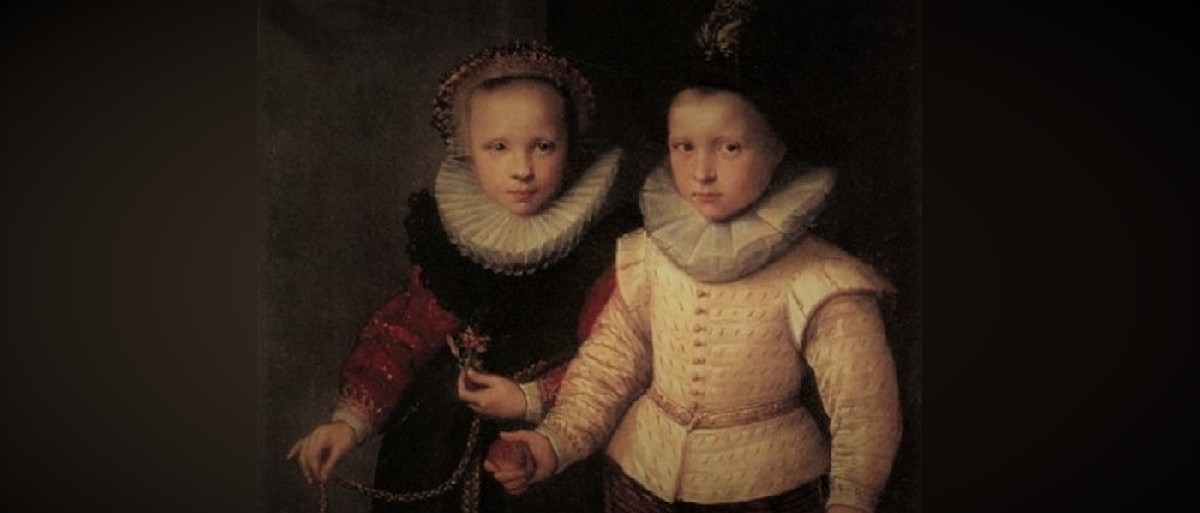Tudor Children
Posted on 23rd January 2021
Many children born in Tudor England died from disease or infection before their first birthday, and as high as 50% did not make it to adulthood. When babies were born, they were baptized within a few days as the risk of dying was so high.
Directly after birth babies were swaddled (wrapped tightly in thin strips of linen, to restrict movement). The babies of wealthy parents were raised and breastfed by a wet-nurse, whereas the poor babies were raised and fed by their mother.
The lives of rich and poor varied greatly, but also had some similarities as it was common for children to be physically punished as this was believed to be a natural and necessary part of their childhood.
Wealthy - A child’s early life was spent with the wet-nurse and servants. The mother spent little time with her children until they became useful, therefore there was no strong parental bond.
During the early years young boys were dressed the same and treated the same as the girls. They were also only used to female company.
Sometimes minor schooling was given from the age of four, but It was at the age of around seven, that everything changed.
Boys would finally dress as boys, and be allowed into male company. They were sent to Grammar schools and girls stayed at home, although in wealthy and nobility families many girls were still educated, although not in school.
It was not unknown for a daughter from a royal family to be betrothed or even married at as young as three or four years of age, as daughters were often used as a pawn to form a political alliance with another country.
Poor - The life of a child born into a poor family was very different to that of a wealthy child, although as the child was raised by its mother a much stronger parental bond was formed.
A child was raised to be useful and from an early age both sons and daughters would work.
Sons would often take up their father’s trade, therefore be taught by their father, or take on an apprenticeship elsewhere. If unable to do this, they may be sent away to work as a servant in a wealthy household.
A daughter would be taught by her mother, gaining the skills to manage a household.
Tagged as: Junior Tudors
Share this post:





